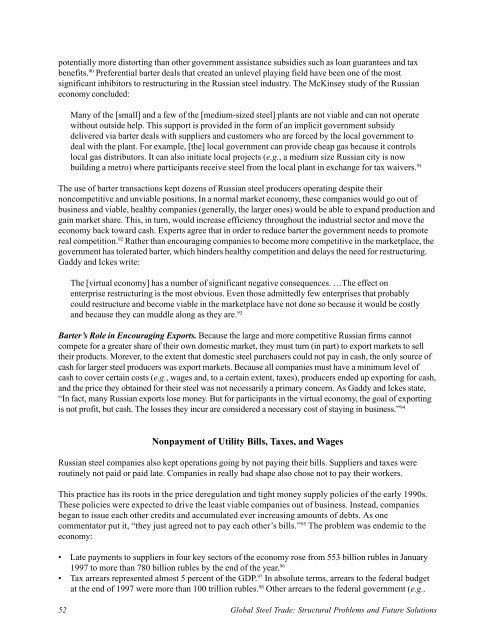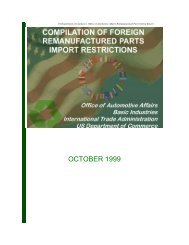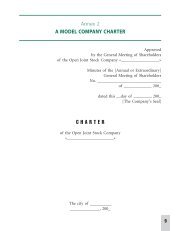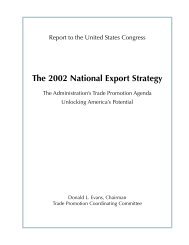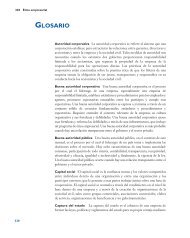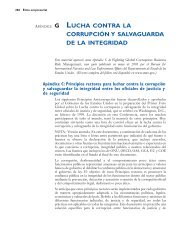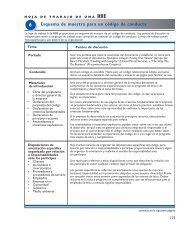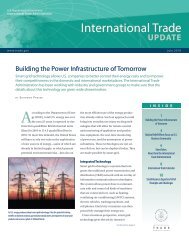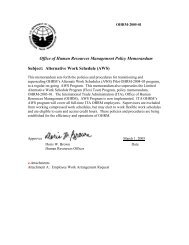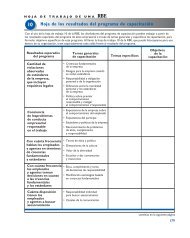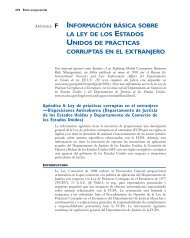Global Steel Trade; Structural Problems and Future Solutions
Global Steel Trade; Structural Problems and Future Solutions
Global Steel Trade; Structural Problems and Future Solutions
You also want an ePaper? Increase the reach of your titles
YUMPU automatically turns print PDFs into web optimized ePapers that Google loves.
potentially more distorting than other government assistance subsidies such as loan guarantees <strong>and</strong> tax<br />
benefits. 90 Preferential barter deals that created an unlevel playing field have been one of the most<br />
significant inhibitors to restructuring in the Russian steel industry. The McKinsey study of the Russian<br />
economy concluded:<br />
Many of the [small] <strong>and</strong> a few of the [medium-sized steel] plants are not viable <strong>and</strong> can not operate<br />
without outside help. This support is provided in the form of an implicit government subsidy<br />
delivered via barter deals with suppliers <strong>and</strong> customers who are forced by the local government to<br />
deal with the plant. For example, [the] local government can provide cheap gas because it controls<br />
local gas distributors. It can also initiate local projects (e.g., a medium size Russian city is now<br />
building a metro) where participants receive steel from the local plant in exchange for tax waivers. 91<br />
The use of barter transactions kept dozens of Russian steel producers operating despite their<br />
noncompetitive <strong>and</strong> unviable positions. In a normal market economy, these companies would go out of<br />
business <strong>and</strong> viable, healthy companies (generally, the larger ones) would be able to exp<strong>and</strong> production <strong>and</strong><br />
gain market share. This, in turn, would increase efficiency throughout the industrial sector <strong>and</strong> move the<br />
economy back toward cash. Experts agree that in order to reduce barter the government needs to promote<br />
real competition. 92 Rather than encouraging companies to become more competitive in the marketplace, the<br />
government has tolerated barter, which hinders healthy competition <strong>and</strong> delays the need for restructuring.<br />
Gaddy <strong>and</strong> Ickes write:<br />
The [virtual economy] has a number of significant negative consequences. …The effect on<br />
enterprise restructuring is the most obvious. Even those admittedly few enterprises that probably<br />
could restructure <strong>and</strong> become viable in the marketplace have not done so because it would be costly<br />
<strong>and</strong> because they can muddle along as they are. 93<br />
Barter’s Role in Encouraging Exports. Because the large <strong>and</strong> more competitive Russian firms cannot<br />
compete for a greater share of their own domestic market, they must turn (in part) to export markets to sell<br />
their products. Morever, to the extent that domestic steel purchasers could not pay in cash, the only source of<br />
cash for larger steel producers was export markets. Because all companies must have a minimum level of<br />
cash to cover certain costs (e.g., wages <strong>and</strong>, to a certain extent, taxes), producers ended up exporting for cash,<br />
<strong>and</strong> the price they obtained for their steel was not necessarily a primary concern. As Gaddy <strong>and</strong> Ickes state,<br />
“In fact, many Russian exports lose money. But for participants in the virtual economy, the goal of exporting<br />
is not profit, but cash. The losses they incur are considered a necessary cost of staying in business.” 94<br />
Nonpayment of Utility Bills, Taxes, <strong>and</strong> Wages<br />
Russian steel companies also kept operations going by not paying their bills. Suppliers <strong>and</strong> taxes were<br />
routinely not paid or paid late. Companies in really bad shape also chose not to pay their workers.<br />
This practice has its roots in the price deregulation <strong>and</strong> tight money supply policies of the early 1990s.<br />
These policies were expected to drive the least viable companies out of business. Instead, companies<br />
began to issue each other credits <strong>and</strong> accumulated ever increasing amounts of debts. As one<br />
commentator put it, “they just agreed not to pay each other’s bills.” 95 The problem was endemic to the<br />
economy:<br />
• Late payments to suppliers in four key sectors of the economy rose from 553 billion rubles in January<br />
1997 to more than 780 billion rubles by the end of the year. 96<br />
• Tax arrears represented almost 5 percent of the GDP. 97 In absolute terms, arrears to the federal budget<br />
at the end of 1997 were more than 100 trillion rubles. 98 Other arrears to the federal government (e.g.,<br />
52 <strong>Global</strong> <strong>Steel</strong> <strong>Trade</strong>: <strong>Structural</strong> <strong>Problems</strong> <strong>and</strong> <strong>Future</strong> <strong>Solutions</strong>


